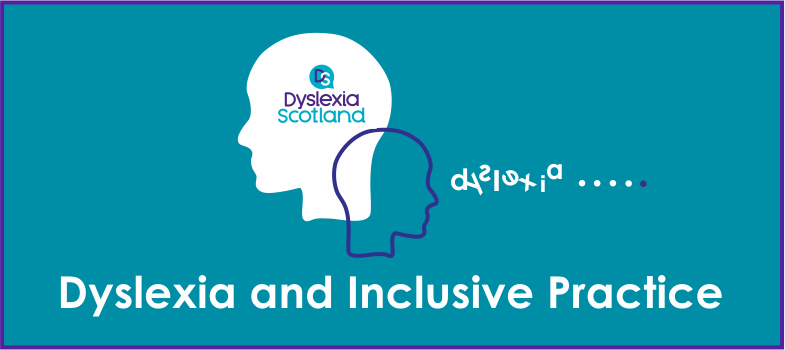Transitions
Recap
Module 2 section 2.5 highlighted the important issue of transitions
It important to understand that transitions occur each day, through the year as listed below and not only at the commonly highlighted stages such as P7 – S1 or S4/5/6 to post school.
- Nursery to P1
- Class to class
- Year to year
- P7 – S1
- Broad general education at the end of S3 into the senior phase
- School to Offsite to school
- Post school
Access the Transitions [Tip: hold Ctrl and click a link to open it in a new tab. (Hide tip)] section within the Addressing Dyslexia Toolkit. New resources are being added and a range of short animations are available.
Post School Transitions
Post School Identification and Support
The criteria involved in providing a post school identification of dyslexia is different from the criteria for a young person who is attending school in Scotland. Therefore it is important that the information gathered at school is made available to the young person before leaving.
Post school Independent Assessments are carried out by practitioners who hold specific qualifications which are not required for teachers in Scottish schools. Independent assessors usually charge for this service.
Employers are not obliged to help with the cost of an assessment but often recognise the benefits an assessment can have for the company and their employee. Support in the workplace is available through the Access to Work programme, arranged through the Job Centre.
Students in Further or higher education
Colleges and Universities have a duty under the UK wide Equality Act 2010 to make ‘reasonable adjustments’, to ensure that students with disabilities are not placed at a disadvantage in comparison to non-disabled students.
This is an anticipatory duty which means that education providers should continually review and anticipate the general needs of disabled people, rather than simply waiting until an individual requests a particular adjustment.
Students might also be able to apply for the Disabled Students’ Allowance (DSA), through Student Award Agency Scotland (SAAS). An assessment is required to access the grant funding. The assessment has to meet a set of criteria and must be carried out by appropriately qualified practitioners - Educational Psychologists or dyslexia specialists.
An Independent Assessment is not required prior to course entry at college or university, particularly if an appropriate assessment has been carried out in school by a qualified individual. If an assessment has been carried out in school, and updated around the age of 16, then some Universities will accept that as proof of dyslexia without the need for any independent, paying assessment. If an assessment is not in place prior to the start of the course, this can lead to a delay in support and assessment arrangements being in place.
In summary the entitlement to assessment and identification of dyslexia differs between school and post school due to the different systems which have been developed for different settings and age groups. It is advisable to contact the colleague or university in advance to find out what their procedures are.
Ensuring that all pupils who require one have access to their learning profile and record of identification prior to leaving school will as discussed in section 2.5, provide valuable information to the post school setting. However for this to happen the transition planning must:
- Be planned in advance and in accordance with the 2017 Code of Practice
- Contain appropriate and robust information
Difficulties arise once the learner has left school as school cannot pass on to third parties information unless they have permission as this will breach data protection legislation. It can be a very difficult and busy time when term starts at college and universities as staff try to gather information on the student’s support need. Problems arise if the student does not have an appropriately robust learning profile which highlights their:
- Strengths
- Areas of difficulties
- Motivations
- Supports which have been in place – including SQA Assessment Arrangements
The Addressing Dyslexia Toolkit has a range of templates which can be used for reporting and providing learner profiles which include post school profiles
Activity 14
How can you ensure you are capturing learners’ strengths as you are progressing through the identification and support process and developing the learner’s profile?
Evaluate the information your schools /authority uses for developing learner’s profiles
Post 16 support
